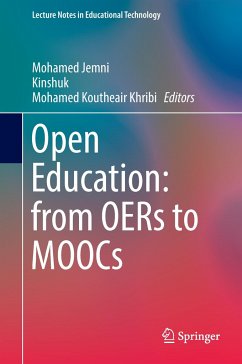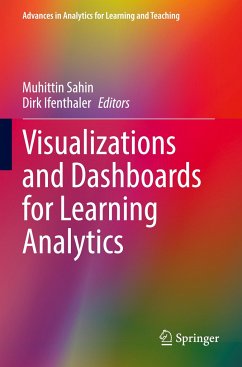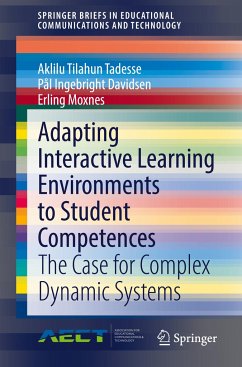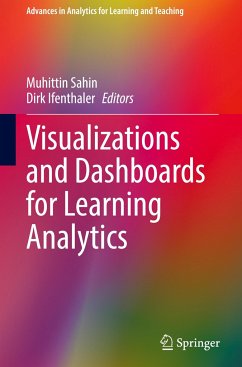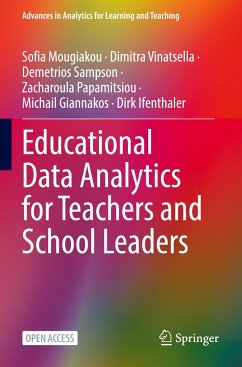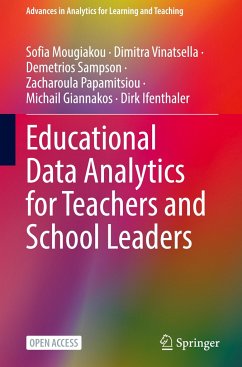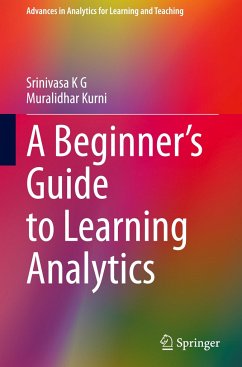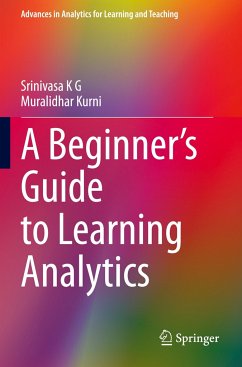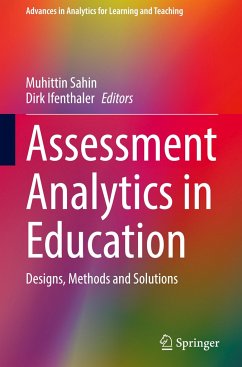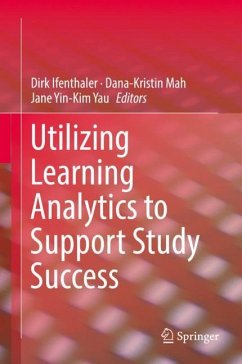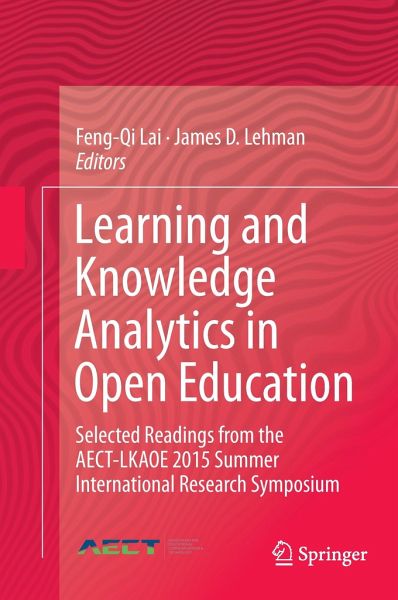
Learning and Knowledge Analytics in Open Education
Selected Readings from the AECT-LKAOE 2015 Summer International Research Symposium
Herausgegeben: Lai, Feng-Qi; Lehman, James D.

PAYBACK Punkte
38 °P sammeln!
This book explores trends in learning and knowledge analytics in open education, as explored in proceedings papers from AECT-LKAOE 2015 International Research Symposium. The chapters investigate various issues surrounding open education in all disciplines, such as learning design in open-ended learning environments, MOOCs (Massive Open Online Courses), learning analytics studies and applications, and technology and new media. The chapter authors provide guidance for how to design and develop most effective, efficient, and appealing instruction as well as suggesting learning strategies relevant...
This book explores trends in learning and knowledge analytics in open education, as explored in proceedings papers from AECT-LKAOE 2015 International Research Symposium. The chapters investigate various issues surrounding open education in all disciplines, such as learning design in open-ended learning environments, MOOCs (Massive Open Online Courses), learning analytics studies and applications, and technology and new media. The chapter authors provide guidance for how to design and develop most effective, efficient, and appealing instruction as well as suggesting learning strategies relevant to the open education era.





